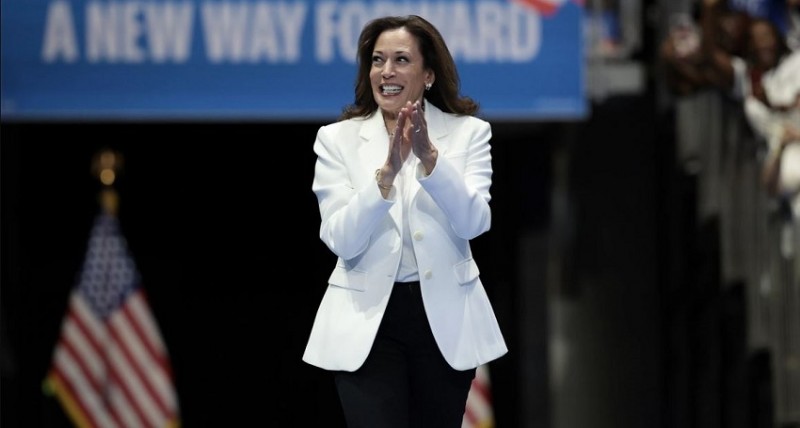
In the upcoming November elections, a win by Vice President Kamala Harris might actually be advantageous for the Republican Party. This perspective, though not openly stated by GOP leaders, suggests that a decisive defeat for former President Donald Trump could help the party transition away from his influence.
A significant loss for Trump would likely diminish his ability to challenge the election results and replay his 2020 strategies. This scenario would offer Republicans a clearer path to rebuild and redefine their party without his overshadowing presence.
Harris, while more moderate than some of her progressive peers, would face limitations in advancing major policy changes due to the likely Republican control of the Senate. Additionally, with a conservative 6-3 majority on the Supreme Court, any legislative efforts from a Democratic White House would be constrained.
As an interim figure with limited policy proposals and a relatively brief record in Washington, Harris could lead to legislative gridlock. If Republicans were to gain control of the Senate, Harris would be the first Democrat to enter the presidency since 1884 without majorities in both chambers, potentially stalling significant Democratic initiatives.
The 2026 midterm elections could be favorable for Republicans under these conditions. An incumbent president from one party often struggles in midterms, and a diminished Trump could make it easier for the GOP to attract strong Senate candidates and challenge Democratic seats.
Governors like Glenn Youngkin of Virginia, Brian Kemp of Georgia, and Chris Sununu of New Hampshire might be strong candidates for Senate races. A hypothetical matchup in 2026 could see more favorable conditions for GOP challengers against Democrats.
Furthermore, a Harris presidency might make it easier for Republicans to overturn a Democratic House majority and gain ground in the 36 governor races scheduled for that year.
Some Republicans are even considering scenarios where Harris’s victory could be accompanied by pardons for Trump and Hunter Biden, potentially neutralizing contentious issues and easing Trump’s influence over the party.
The broader GOP debate revolves around whether enduring a Harris presidency might be preferable to allowing Trump another term. If Trump loses, his potential to claim electoral fraud and possibly run for a fourth term could keep the party divided.
Although navigating past Trump will be challenging, it may be necessary for the GOP to regain its status as a viable national party. Historically, Republicans have struggled to secure broad electoral victories, with only one popular vote win since 1992. The party’s recent struggles include underperforming in midterms and losing key races, partly due to candidates endorsed by Trump.
For the GOP to move forward, it will need to balance between embracing a post-Trump identity while still considering the preferences of its base. Finding a new path that incorporates elements from both traditional conservatism and Trump’s supporters could be the key to revitalizing the party.
Ultimately, Trump’s erratic behavior and frequent self-sabotage may undermine his effectiveness, further supporting the argument that a decisive defeat for him could pave the way for a more unified and forward-looking Republican Party.